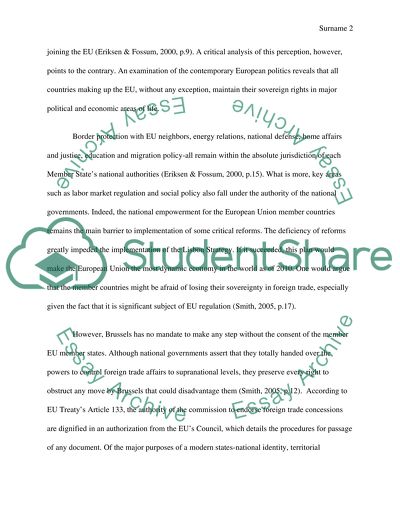Cite this document
(“European Integration and Sovereignty Essay Example | Topics and Well Written Essays - 2500 words”, n.d.)
Retrieved from https://studentshare.org/social-science/1669588-european-integration-and-sovereignty
Retrieved from https://studentshare.org/social-science/1669588-european-integration-and-sovereignty
(European Integration and Sovereignty Essay Example | Topics and Well Written Essays - 2500 Words)
https://studentshare.org/social-science/1669588-european-integration-and-sovereignty.
https://studentshare.org/social-science/1669588-european-integration-and-sovereignty.
“European Integration and Sovereignty Essay Example | Topics and Well Written Essays - 2500 Words”, n.d. https://studentshare.org/social-science/1669588-european-integration-and-sovereignty.


